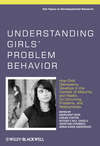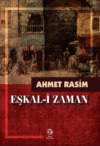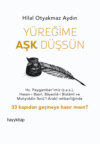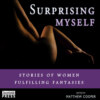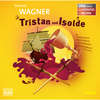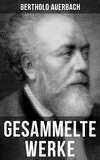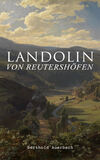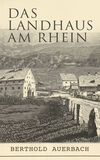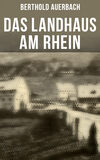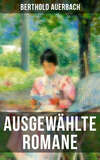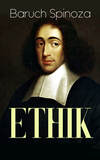Kitabı oku: «Villa Eden: The Country-House on the Rhine», sayfa 24
Eric now spoke directly of his journey. His mother heard him through quietly, except that when Bella was mentioned, she said, – "Bella Pranken is a woman who cannot be counted on."
The old plans were discussed anew. Eric wanted to establish an educational institution, and his mother and aunt were strongly inclined to this, as they had many connections with the best families of the country; but they were not agreed whether they should have an institution for girls or for boys. Eric was in favor of the latter, as he could have more direct relations with that; but his mother wanted him to make a scientific journey for several years, so as to acquire a reputation at once by means of some great work, and not creep on in the plodding path. She and the aunt would, in the meanwhile, earn so much at the capital that Eric could live free from care.
They came to the conclusion to make no positive decision until Herr Sonnenkamp's letter should be received. The mother said that it would be the fulfilment of one of her ideals of life to take possession of the vine-covered little house; and she entertained a sanguine hope of attaining some influence over the lad surrounded by the dangers of riches; she should be glad to do so, as he was just the age of the son she had lost.
Eric visited his old teacher and friend, Professor Einsiedel, who was his chief instructor. He was a high-priest of science, a man who, engaged continually and exclusively in the region of pure thought, and in investigations for the extension of the sphere of knowledge, lived entirely alone, regular, methodical, systematic, free from all excitement, eating and drinking an incredibly small quantity, but always attracted by new developments of truth, always open-eyed to look into the widespreading realm of thought.
Professor Einsiedel had been a friend of Eric's father, and he always lamented that he, who was continually striving after the best and the perfect, had not accomplished the good, which is necessarily incomplete. His axiom was, that we must be contented with having made some small, individual contribution, and that this extends to become a part of the great whole. We never accomplish anything that gives us perfect satisfaction, and to which we have nothing more to add. Only of the Creator can it be said, that on ending his work. He saw that it was good. The absolute mind can alone effect that the created existence shall correspond to the creative thought, the actual to the ideal; the finite mind must always have over it the idea of what it can do, and what it ought to do.
Whenever Eric came to the professor with any scientific inquiry, he received at once direction as to the best and most direct sources of information; he would even, with the greatest disinterestedness, place at the disposal of every one his own carefully prepared notes. It was the same to him whether it were published under his own name or under that of another person, provided it went forth to the world.
In the professor's study was a picture by Rembrandt, a small copper-plate engraving, which was almost a portrait of the professor himself. It represented Faust in his night-cap, gazing at the magic circle illuminated by its own light. Faust is an old, wizzled-up little man, sorely in need of the rejuvenating draught. Professor Einsiedel had no such magic potion, but he drank new life, every day, from the ancient classics.
When Eric now called upon him, to get help and advice, he found the good old professor – living entirely alone, and troubled not so much by being alone, as by the necessity of taking care of life – in rather an odd plight. He regretted that Eric did not devote himself exclusively to science, but admitted also that Eric's natural tendency was to some practical and personal activity. And with a smile, peculiarly his own, he said, —
"You are a well-formed man, and you ought to make money out of that, for it is worth something. Yes, yes, that will be a help."
Eric, in his restlessness and in his ardent desire not to be waiting, but to do something for himself, went the next day to the capital, for he had heard from the antiquarian, that an elderly man who conducted a very respectable institute was about to retire, and wanted to transfer it to good hands.
He came to the capital where he had lived as an officer many years, respected and without care. Several comrades in their uniform seemed not to know him; others bethought themselves after he had passed, and called out, "Ah, is it you? Good-morning!" and went on. He went through the capital, where he was born, and where he felt at home, making inquiries like a stranger; he hoped it would again seem familiar and homelike to him, when he should go out into the streets from an established place of abode and a daily employment.
He was well received by the school-proprietor, and the conditions were acceptable. The respect in which his parents were held was of great advantage to him here; but the necessity of adopting the old regulations and methods made him hesitate. Without coming to any definite arrangement, he left the school-building.
He met now in one of the streets an old friend of his father, the present minister of education, who, stopping him, and inquiring about his mother and his own welfare, offered him the situation of custodian in the cabinet of antiquities, with the assurance that he should soon be promoted to the directorship. Eric promised to take the matter into consideration.
Just as he left the minister, an oldish man, who had been waiting for him under a house-porch, came up to him and greeted him in a very friendly manner. Eric could not call to mind who he was, and the man said that Eric had once done him a good turn in the house of correction, and thanked him for it; he was now in a very good situation as servant of the chancellor, and with a half-sly, half-pious expression of countenance, he offered to render Eric any service that was in his power.
Eric thanked him; he did not notice that many persons, who went by and recognised him, regarded this companionship as very odd.
Now the comrade who had taken Eric's place, and had become an actual captain, came from parade; he took Eric with him to the military club-house, and Eric was cheerful and lost all thought of the troubles of life. In the club-house there was much talk about Otto von Pranken and his marriage with a Creole worth many millions. Eric did not consider it necessary to say that Manna was no Creole, and that he had some knowledge of how the matter really stood.
CHAPTER XI.
WHERE ART THOU, ROLAND?
"Where is Roland?"
Sonnenkamp asks Joseph, Joseph asks Bertram, Bertram asks Lootz, Lootz asks the head-gardener, the head-gardener asks the Little-squirrel, the Little-squirrel asks the laborers, the laborers ask the children, the children ask the air, Fräulein Perini asks the Chevalier, the Chevalier asks the dogs, and Frau Ceres must find out nothing from any of them.
Sonnenkamp rides at full speed to the Major, the Major asks Fräulein Milch, but she, who knows everything, this time knows nothing. The Major rides to the castle; Roland's name is called out in all the excavations and dungeons, but there is no answer.
Sonnenkamp sends the groom to the huntsman, but he is off to the field, and not to be found.
Sonnenkamp rides to the railroad station, taking with him Puck, Roland's pony, and often looking at the empty saddle. He asks at the station, in an indifferent tone, if Roland had not arrived, as if he were expecting his return from a journey. No one had seen him. Sonnenkamp rides back to the villa, and asks hurriedly if he has not come, and when they say no, he rides to the next station up the river. He asks here also, but less cautiously, and here nothing is known. The servants rush hither and thither as if bewildered.
Sonnenkamp returns to the villa; the Major is there; Fräulein Milch has sent him, as perhaps he can render some assistance. She thinks that Roland has certainly gone to the convent. The Major and Sonnenkamp drive to the telegraph-office, and send a message to the convent; they are extremely impatient, for there is no direct telegraphic communication, and so it will be two hours before an answer can be returned. Sonnenkamp desires to wait here, and sends the Major to the town, where he was to see the doctor, and make inquiries everywhere, but not so as to excite any observation.
Sonnenkamp goes up and down at the station, and places his hot brow against the cool stone pillars; all is quiet and empty. He went into the passengers' room; he found that the seats at the station were not made for comfortable rest; it was horribly inhuman. In America it is different, or it isn't – no matter.
He went out; he saw the men loading a freight-car, – they did it so leisurely; he looked at a stone-cutter who was using a pick and a hammer: he looked fixedly at him as if he himself wanted to learn the trade. People everywhere were working so quietly; they might well do so, they had not lost a son. He observed the telegraph-wires, he had an impulse to cry throughout the whole world, even where it would be of no possible avail, —
"Where is my son?"
Night comes on. The railway-train rolls in, and Sonnenkamp steps back in terror; it seems to him that the locomotive would rush directly upon him. He composes himself, he looks about, he strains his eyes, he sees nothing of Roland. The people disperse, and all is again still.
Sonnenkamp went to the telegraphist, and asked again if the telegram which had been sent had reached its destination. The reply was, "Yes." The clicking of the telegraph-lever thrilled him; he felt the same blows in his throbbing temples. He requested the operator to remain there during the night, as one could not tell but that a message might be sent to him, or he might want to send one.
But the operator refused, although a large sum of money was offered him; he was not allowed to change the arrangements without orders from his superiors. He ordered his assistant to stay there as long as he himself remained; he closed the door with a bang, and went off. He was evidently afraid of Sonnenkamp.
Sonnenkamp was again alone. Then he heard the stroke of oars on the river.
"Is it you, Herr Major?" he cried out into the starlight night.
"Yes."
"Have you found him?"
"No."
The Major got out of the boat; there was no trace of Roland in the town. An answer could not be received from the convent before early the next morning. Now the thought presented itself, that perhaps Roland was with Count Wolfsgarten. A messenger was sent thither, and they returned to the villa.
When Sonnenkamp extended his hand to the Major to help him into the carriage the latter said, —
"Your hand is so cold to-day."
It shot through Sonnenkamp's brain, like an arrow, that he had wanted to punish the boy to-day. If the boy, with this thought in his mind, had drowned himself in the waters of the Rhine!
The ring on his thumb burned into his flesh, as if it were red-hot.
Joseph met them on their way back to the villa.
"Is he there?" cried the Major. Sonnenkamp could not himself ask the question.
"No; but the gracious lady has got hold of it."
In the village through which they drove, people were still standing together in groups, and chatting in the mild spring-night. They met the priest, and Sonnenkamp requested him to accompany them to the villa.
When they arrived at the court of the villa, Sonnenkamp remained sitting in the carriage, as if he had lost himself, and did not get out until he was spoken to. He gained strength and self-possession after his feet touched the ground.
Lights flitted to and fro, and shone through the lofty windows of the house. Now a shriek was heard, and he hurried in. In the great saloon, Frau Ceres, in her night-dress, was kneeling before a chair, her face hidden in the cushion. The priest stood by her side, Fräulein Perini was pouring an effervescent powder into a glass. Sonnenkamp went quickly to his wife, placed his hand upon her shoulder, crying, —
"Ceres, be quiet."
The lady turned round, glared at him with glowing eyes, then sprang up, tore open the garment on his breast, shrieking, —
"My son! give me my son, you – "
Sonnenkamp held his broad hand over her mouth; she tried to bite him, but he kept her mouth closed, and she was still.
Sonnenkamp requested the priest and Fräulein Perini to leave his wife; Fräulein Perini hesitated, but a wave of his hand gave her decided orders to go. She and the Ecclesiastic left the room. Now Sonnenkamp took Frau Ceres up in his arms, as if she were a child; carried her in to her chamber, and laid her upon the bed. Her feet were cold, and he wrapped a cloth around them in such a manner, that they were firmly bound. After a while, Frau Ceres slept, or only pretended to be asleep; it was the same either way. He went out into the balcony-chamber, where the Ecclesiastic, the Major, and Fräulein Perini were sitting together. He urged the priest to betake himself to rest, thanking him very warmly; he said the same to Fräulein Perini, with an odd mingling of courteousness and authoritativeness in his manner; he requested the Major to stay with him.
For an hour he sat with the Major at the open balcony-door, looking up at the starry heaven and listening to the rushing river; then he requested the Major to go to bed; the day would enable them to proceed quietly on sure ground. He himself lay down in the ante-chamber to his wife's room; he went again softly to her bed, shading the light with his hand; she was sleeping quietly, with burning cheeks.
All was still at the villa. Sonnenkamp was waked up when the messenger returned from Wolfsgarten; they knew nothing of Roland there.
"Is Herr von Pranken coming?" asked Sonnenkamp. The messenger did not know.
Sonnenkamp was very weary, and exhausted from want of sleep, but he could not rest; he stood at the balcony and listened to the singing of the birds and the rushing of the river; he saw the sun rise in the heavens, he heard the clocks strike; the whole world, so fresh and beautiful, seemed to him a chaos. His daughter at the convent, and his wife ready, at any moment, to testify the most horrible things against him, and his son disappeared, leaving no trace! Perhaps his corpse is floating yonder in the water! It seemed to Sonnenkamp, for a moment, as if he must throw himself headlong from the balcony, and put an end to his life. Then he stood erect and took a fresh cigar.
He went down into the park; the trees were quivering noiselessly in the early dawn, and their leaves rustled and whispered when the morning sunbeam stirred them into music and motion. The birds were carroling; they had their home and their family, and to them no child was missing-
Sonnenkamp wandered hither and thither. This soil is his, these trees are his, everything is green, blooming, breathing a fresh life. Does he still breathe for whom all this had life, for whom it all was to live, for whom it was planted and set in order?
"Why is it? why is it?" shrieked Sonnenkamp through the park. No reply came from without; perhaps one came from within, for he pressed both hands, doubled up, against his breast.
He came into the orchard. There stood the trees, whose branches he had shaped according to his pleasure; they stood in full blossom, and now, in the first morning beam, the blossoms were falling down like a low rustling rain upon the ground, that looked white as if covered with flakes of snow.
The lighter the morning became, the more confident did Sonnenkamp feel that Roland was floating there a corpse in the river, which was now of a reddish purple, a stream of blood; the far-extending water was nothing but blood! He uttered a deep groan, and stretched out his hand, as if he must grasp and throttle something. He seized hold of a tree and shook it, and shook it again and again, so that there was scarcely a blossom left upon it; he stood there covered all over with the petals. And now he broke out into a scornful laugh.
"Life shall not vanquish me! Nothing! Not even thou! Roland, where art thou?"
At this instant he saw a white form, with a strange head-covering, glide through the orchard, and vanish behind the trees. What is that? He rubbed his eyes. Was that a mere fancy, or was it a reality?
He went after the apparition.
"Stop," he cried, "there are steel-traps there, there's a spring-gun there!" A woman's voice uttered a lamentable, shriek. Sonnenkamp went up to her, and Fräulein Milch stood before him. "What do you want here? What's the matter?"
"I wanted the Herr Major."
"He is still asleep."
"I may also tell you," Fräulein Milch began, composing herself, "it leaves me no rest."
"Out with it, – no preliminaries!"
Fräulein Milch drew herself up haughtily and said, —
"If you are in that humor, I can go away as I came."
"Excuse me, what then do you want?" he asked gently.
"I had a suggestion for you."
Sonnenkamp composed himself to listen patiently, and nodded to her to go on. She now said that she could not rest, she did not know whether the Major had suggested it. Sonnenkamp broke off impatiently a blossoming twig, and Fräulein Milch continued, – she thought that the Herr Captain Dournay might perhaps know where Roland was; they ought to telegraph to him.
Sonnenkamp thanked the old dame with a very obliging smile, and said, exercising great self-command, that he would wake up the Major, and send him into the garden; but Fräulein Milch begged that he might be allowed to take his sleep quietly. She turned back to her house, and Sonnenkamp walked on through the park.
The roses had bloomed out during the night, and from hundreds of stems and bushes sent their fragrance to their owner, but he was not refreshed by it. Here is the park, here are the trees, here is the house, all this can be acquired, can be won. But one thing cannot be won: a life, a child's life, a child's heart, a union of soul with soul, which can never be sundered, and can never come to an end.
And again came to him that cutting sentence, – You have killed the noblest impulses in your fellow-men, the feeling of father, and mother, and child. Now it is you who suffer!
Why does the word of that opponent in the New World hover around him to-day, today, as it did yesterday? Is that terrible man, perchance, on board that boat which is now steaming up the stream in the first morning light?
He could not imagine that, at this very moment, the child of this man was speaking to his own child.
CHAPTER XII.
WHAT IS STIRRING BY NIGHT
The roses in the garden, and in the youth's soul, all opened during the night.
To Eric! Roland's open mouth would have said, but no sound was uttered, he said it only to himself. It was a clear starlight-night, the waning moon, in its third quarter, hung in the heavens, giving a soft light, and Roland was penetrated with such a feeling of gladness, that he often threw out his arms, as if they were wings with which he could easily fly. He went at a quick pace, as if he were pursued; he heard steps behind him, and stopped; it was only the echo of his own footsteps.
At a distance a group of men, standing still, were waiting for him. He came nearer; they were wooden posts, painted black, intended to fence in a vineyard. He moderated his pace, and would have sung, but he feared to betray himself by any sound. He stood still upon an elevation, and heard far below upon the river the wheezy puffing of a tow-boat; he saw the lights upon the masts of the boats in tow, and they moved along so wonderfully! He counted them, and there were seven.
"They are also awake," he said to himself, and it occurred to him, for the first time, that people were obliged to be awake, and to labor at night to earn their living, as the engineers there on the tow-boat, the helmsmen, and the boatmen on the boats in tow.
Why is this? What forces men to this? The boy angrily shook his head. Why did this trouble him? He walked on over the high level plain, and then ascended a hill behind it. He took a childlike pleasure that his shadow accompanied him. He kept always the middle of the road; the ditches by the wayside looked dismal and haunted. He was startled at the shadows which the trees cast in the light of the moon, and was glad when he came where it was clear and bright. When he drew near to a village, he felt secure, for although everybody was asleep, yet he was in the midst of human beings. The boy had been told that, by night, thieves and murderers go about on all the roads to rob and to murder. What did he have about him for them to rob? His watch and chain. He took out his watch, wanting to conceal it.
"For shame!" he suddenly cried. He became conscious how afraid he was in the depth of his soul; he would not be afraid. He boldly summoned up the dangers which he wanted to encounter, rejoiced over them, and cried aloud, —
"Come on! Here am I, and here is Devil too! Isn't it so, Devil? Just let them come on!" he said to the dog caressingly. The dog leaped up to him.
He passed through a village. All were asleep, except that here and there a dog barked, scenting Devil's proximity. Roland ordered him to be quiet, and he obeyed. The boy recognized the village as the one where he had been with the doctor and Eric on Sunday: here was the house where the man had died; here on the opposite side was the gymnastic ground, where he had exercised with Eric. At last he came to the house of Sevenpiper, where the entire orchestra were now asleep. He stood awhile, considering whether he should not wake up some one in the house, either to go with him, or to be sent to his father. He rejected both suggestions and went on.
The night was perfectly still; the only sound was the occasional barking of a dog at a distance, as if disturbed in his sleep. A brook rippled by the wayside, and he was glad to hear its strange sound; it went as if chatting with him for a while, and then disappeared, and all was silent. He passed through a ravine, where it was so dark from the high trees on both sides that he could not see the path; quietly composing himself, he went forward, thinking how beautiful it must be there in the clear daylight. He emerged from the ravine, and was rejoiced to be in the highway again. Over the ridge of a mountain shone a star, so large, so brilliant, always, going up higher, and gleaming so brightly! Does Manna know what star this is?
There was a light in the first house of a village; he stopped. He heard voices. The woman inside was mourning and lamenting, that, on the morrow, her only cow was to be sold. Taking his resolution quickly, Roland placed several gold pieces upon the window-sill of the lower room, and knocked on the window-pane, crying, —
"You people! there is, some money for the cow upon the sill."
He ran breathlessly away, a sort of trouble coming over him, as if he were a thief; he did not stop until he had gone some distance, crouching down in a ditch. He could not tell why he had run from there. As he now lay there and hearkened whether the people followed him, he laughed merrily to himself, to think that it must seem to them to have been some spirit that goes about healing men's sorrows, and making them grateful. No one came. He went on vigorously, happy in the thought of what he had done, and thinking that when he had a great deal of money – as he would have at some time – he would go about secretly in the world, and thus make everybody happy wherever his footsteps went.
When he fixed his gaze again upon the path, he saw a strange-looking man in the field by the wayside, who was aiming a gun directly at him. Roland, trembling, stood still, and asked the man what he wanted; the man did not move. Roland set the dog upon him, and the dog came back, shaking his head. Roland went up to the form, and laughed and trembled at the same time, to find that it was nothing but a scarecrow.
A wagon, groaning under its heavy load, came nearer and nearer. It was a strange creaking and clattering, as the wagon swayed upon its axle, and the wheels grated upon and crushed the stones. Roland came to the conclusion that the wagon had only two wheels, and was drawn by one horse. He kept still, in order to determine this, and then he heard the sound of several hoofs. He awaited the approach of the wagon, and saw that there were two horses harnessed tandem to a wagon with only two wheels. Roland went on one side, and waited for the wagon to go by; the driver walked near it, whistling and cracking his whip. Roland walked on, keeping at a little distance behind the wagon. A fearfulness had taken possession of the youthful wanderer by night, and now he felt himself near a human being who was awake; if any danger threatened he could call upon him. "Yes," he said inwardly to himself, "this is how I would call out, —
"'Help! help!'"
But no danger presented itself. And he said to his dog, as if in derision, —
"Shame that nobody assails us, to give us both a chance to show how courageous we are."
But he was terrified when all at once he heard nothing more of the wagon; it had stopped at the toll-gate. When it again creaked he was in good spirits once more. The wagon halted at the first house of the next village. The hostler, who seemed to have been expecting the driver, was not a little amazed to see, by the light of the lantern which he had with him, a handsome boy with sparkling eyes. "Hi! who may this be?" the servant cried, leaving his mouth wide open with astonishment and terror, for the great dog sniffed about his legs, then placed himself in front of the terrified fellow, showing all his teeth, and blinking back to his master, as if waiting for the watchword, "Seize him!"
Roland ordered the dog to come away. There must have been something in his voice that produced a feeling of respect in the driver and in the servant.
They asked him whether he would not also take a drink. Roland said yes. And he sat now at table, touching glasses with the teamster by the light of a solitary oil lamp. The servant was inquisitive, and said with a smirk, pointing to Roland's delicate hand, —
"That's a splendid finger-ring; how that stone does shine! That is worth ever so much, isn't it? You! make me a present of that."
The landlord, in the sleeping-room adjoining, hearing this, came in, ghostlike, in his shirt and drawers. Roland was now asked who he was, whence he came, and where he was going. He gave an evasive answer.
The teamster left, and Roland, keeping by his side, listened to the narration of his way of life. He learned that the wagon was loaded with new stone bottles, which were carried to a neighboring mineral-spring, and thence were sent into all the world, even as far as Holland. Roland was astonished to find how many kinds of occupation were requisite, before the mineral-water was drunk at his father's table. For the teamster, Holland was the end of the world; he was amazed when Roland told him that there were many countries, even whole divisions of the earth, much farther off than Holland. The teamster was surprised at Roland's extensive knowledge, and inquired if he had ever been so far away.
Roland gave an indirect reply. And now the teamster told him that he himself was an honest fellow, that he had earned by hard work everything which he had upon his back, and he would go hungry and beg, before he would get anything by dishonest means. He advised Roland, if he had done anything which made him afraid of being punished – if perhaps he had stolen the ring – he had better return and give everything up. Roland set the man at rest.
The road led through a small forest of handsome oak-trees. The screeching of an owl was heard, Sounding like a mocking laugh.
"Thank God," said the teamster, "that you are with me; did you hear that laugh?"
"That is no laugh, that was a screech-owl."
"Yes, screech-owl – that's the laughing spirit."
"The laughing-spirit? Tell me what that is."
"Yes; my mother heard it once in broad daylight, when she was just a little girl. The children were at one time out there in the wood, to get acorns. You perhaps know that they shake down the acorns and place a white cloth under the tree, and catch them in that; it makes the best food for hogs. Well, the children are in the woods on a fine afternoon in autumn, the boys get up into the tree and shake down the acorns, and there is such a rattling! Then they hear, all at once, in the thicket a loud laugh. 'What is that?' – 'O,' says my mother, 'that is a spirit.' 'What!' says a saucy fellow there, 'if it's a spirit, then I will just for once take a look at him.' He goes into the thicket, and when he once gets into the thicket, there sits a mighty little dwarf upon a tree-stump; his head is almost bigger than his whole body, he is gray all over, and he has a long gray beard. And the boy asks, 'Is't you that laughed so?' 'Nobody else,' says the dwarf, and laughs once more, exactly as before. 'You have shaken down the acorns, but there is one fallen down under the cloth, deep into the moss, that you will not find, and out of that acorn will grow up a tree, and when it is large enough it will be cut down, and out of one part of the boards a cradle wilt be made, and out of the other part a door, and a child will be laid in the cradle, and when that child shall open that door for the first time, I shall be released. Until that time I must wander about, because I have been a forest-trespasser, and lived on dishonest means.' The little dwarf laughs again, and then vanishes into the tree-stump Since then he's been heard many a time, but nobody's seen him again. Everybody knows the oak-tree in the forest, but no one disturbs it."
Roland shuddered. He did not believe in the story, but he gave attention while the teamster continued to relate to him how hard it was to get rid of possessions dishonestly acquired.
Gradually it began to be twilight. Roland extended his hand to the teamster, and bade him good-bye, as he wished to stay here and wait awhile. The teamster seated himself upon the wagon-shafts, and fixed himself comfortably, as it was now day, and he could doze a little.

